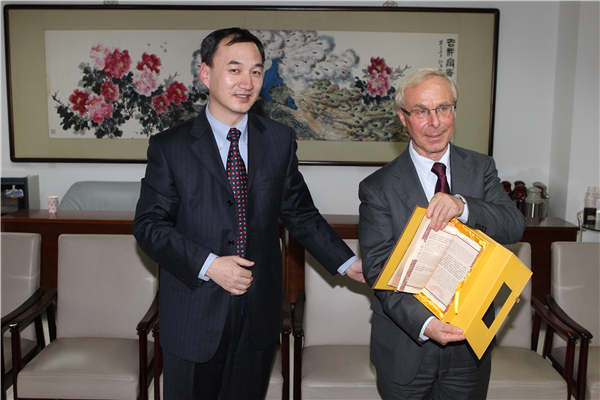 |
|
Mueck receives an award from an official of the State Administration of Foreign Experts Affairs. |
As part of the project, Mueck has played a major role in helping the hospital establish China's first ovarian-tissue cryopreservation bank. The project aims to preserve women's reproductive abilities that may have suffered damage due to removal of ovaries or during the treatment of cancer.
In some Western countries, it is increasingly the norm to look at preserving a patient's reproductive abilities during cancer treatment. The cryopreservation of embryos, oocytes and ovarian tissues are three possible methods.
Although technologies relevant to the cryopreservation of embryos and oocytes are relatively advanced, they aren't able to preserve the endocrine functions of women, and are considered unsuitable for adolescent girls, Mueck says.
Compared with the first two technologies, ovarian tissue cryopreservation has big advantages, though relevant technology is still being improved, he says.
Using the technology, a part of the patient's ovarian tissue is taken out and frozen to be transplanted back after she has recovered from a disease such as cancer. It allows the patient to retain her reproductive and endocrine functions.
Although there have been many cases of babies born globally with the help of such technologies, it remained unexplored in China before the BOGH project started. A special lab for the project opened last year, and more than 35 cases of ovarian-tissue cryopreservation have been carried out.
To help boost the project and improve the cryopreservation bank, Mueck also invited other German experts to China. The bank maintains the viability of tissues and organs by freezing them.